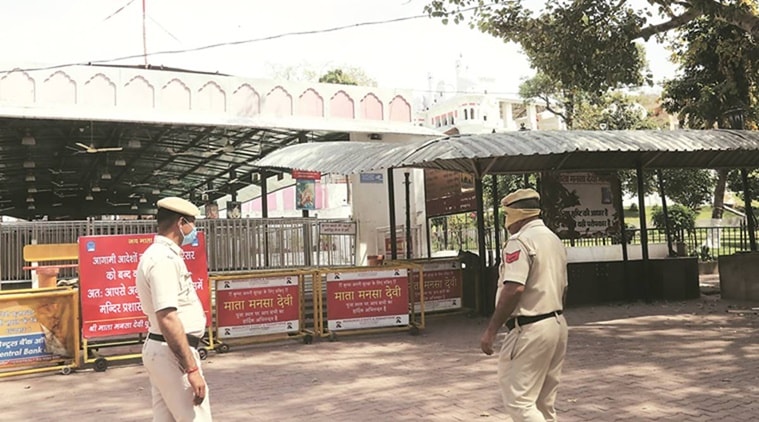 The Chandigarh Police is set to place an order for Ayurveda-based prophylactic medicines for its personnel on COVID-19 duty. (File photo)
The Chandigarh Police is set to place an order for Ayurveda-based prophylactic medicines for its personnel on COVID-19 duty. (File photo)
The Chandigarh Police is set to place an order for Ayurveda-based prophylactic medicines for its personnel on COVID-19 duty. This is yet another AYUSH- based medical intervention made in the UT for its patients and frontline warriors, after a slew of other R and D activities and medical treatment through AYUSH practices have already taken place in the UT as part of its efforts to battle COVID-19.
“These medicines will be on the same pattern as the medicines which were administered to the Delhi Police as well. Our Ayurveda doctor posted at the Police Hospital in Sector 26 will monitor the distribution of this medication and regulate the dosage for police officials who do end up taking these medicines,” says a UT Police
official made responsible for procuring these medications.
In early May, the All India Institute for Ayurveda (AIIA) in Delhi launched an initiative with the Delhi Police entitled “Ayuraksha-Corona se Jung- Delhi Police ke Sung”. As part of this initiative, an immunity-boosting kit consisting of three Ayurvedic medicines was distributed to Delhi Police personnel.
This kit comprised a herbal tea concoction or kadha, ‘Sanshmani’ tablet made of giloy and an oil to be used as nasal drops for decongestion. Apart from this, chyawanprash packets were also distributed to the police.
“As of now, we are already distributing Vitamin C tablets to our force as an immunity-boosting measure. As for HCQ, we have procured it for the police, but we do not wish to distribute it unless recommended by a doctor, because the medicine is known to have serious side-effects,” says the police officer responsible for procurement, explaining why HCQ has not been distributed indiscriminately to members of the UT Police force.
Slew of AYUSH-related medical interventions in Chandigarh
Dr Naresh Mittal, the nodal officer at Dhanwantri Ayurveda College which houses COVID-19 patients with mild to no symptoms in Chandigarh, states that he has offered to regulate this prophylactic treatment as well and collect data on the efficacy of its use which can be submitted to the AYUSH ministry.
Mittal is already working as a principal investigator for other R and D activities at Dhanwantri College. These activities include a trial study on the efficacy and safety of Ayurvedic Formulation AYUSH 64 in treating COVID-19 patients with mild to moderate symptoms. This is a multi-centre trial regulated and commissioned by the Central Council for Research in Ayurvedic Sciences (CCRAS).
Apart from this, ayurvedic medical intervention was made to treate asymptomatic COVID-19 patients at the college as well, the efficacy of which was observed and compiled into a study which was submitted to CCRAS as well. “Apart from this, we have been creating in-house Ayurveda treatments, including a 10- ingredient kadha we give to our staff here at Dhanwantri. There has been a demand for it by other frontline workers and residents in the city as well,” Mittal says.
As for homeopathic treatment, vials of Albumin Arsenic 30 were distributed to all residents living in the containment zone and COVID-19 hotspot of Bapu Dham Colony in late April as a prophylactic measure.